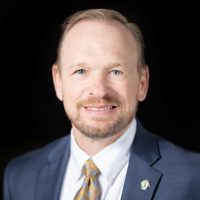The University of Idaho will soon have a new school dedicated to health professions, an initiative aimed at easing a shortage of medical providers in North Idaho and across the state.
The State Board of Education Thursday approved U of I’s proposal for a new School of Health and Medical Professions, which will house three departments — medicine, clinical medicine and nursing. The State Board unanimously OK’d the plan, after some lobbying by U of I President C. Scott Green and Jeff Seegmiller, dean and director for the university’s WWAMI medical program.
Seegmiller made an impassioned plea to expand health education offerings in North Idaho. In April, Seegmiller was in a motorcycle accident that caused multiple pelvic fractures. A shortage of local health care workers led to delayed care, longer hospital stays, increased costs and more pain, Seegmiller said. But he found a provider that could conduct surgery, thanks to his knowledge of the health care system and his financial means.
“I am walking today because of it,” Seegmiller told the State Board. “I was lucky. But other patients would have likely had complications, resulting in more emergency room visits, and would still be in bed today, unable to walk.”

The School of Health and Medical Professions will eventually house six new programs, including a graduate degree in gerontology (study of the aging processes), which the State Board approved Thursday. It will also host WWAMI, an existing medical education partnership between U of I and schools in Washington, Montana, Wyoming and Alaska.
Green touted U of I’s collaboration with Idaho State University — which offers a suite of health care degrees at campuses in Pocatello and Meridian — to coordinate new students entering the health care pipeline. The schools will jointly offer physician assistant programs in the coming years.
“It is clear to us that no one institution has the resources to meet the health care needs of our state,” Green said. “The situation is already a crisis and it’s only getting worse.”
U of I’s plan calls for about $1.2 million annually to operate the health professions school — most of which would go toward salaries for seven full-time administrators — along with $200,000 for one-time equipment costs.
